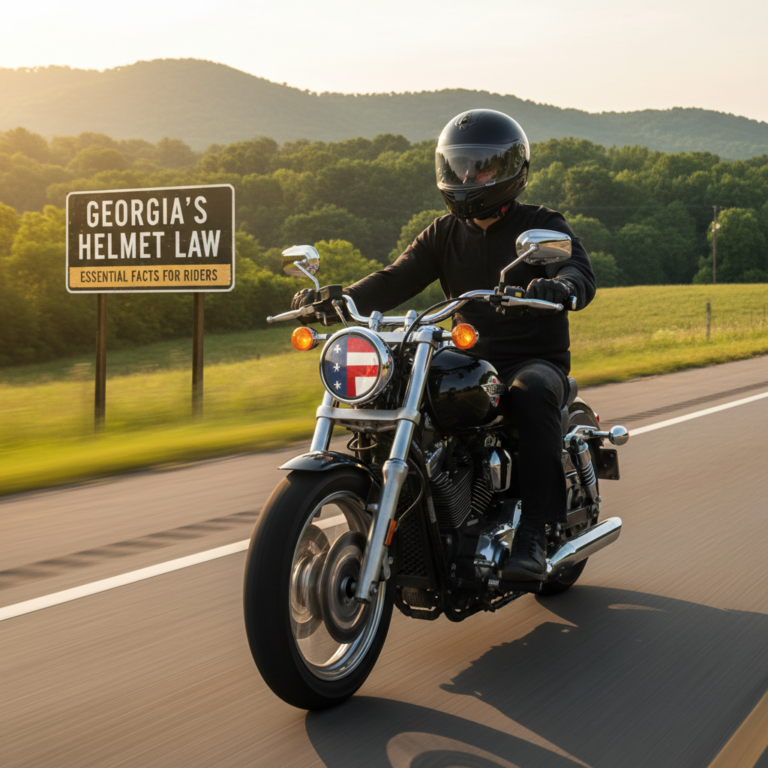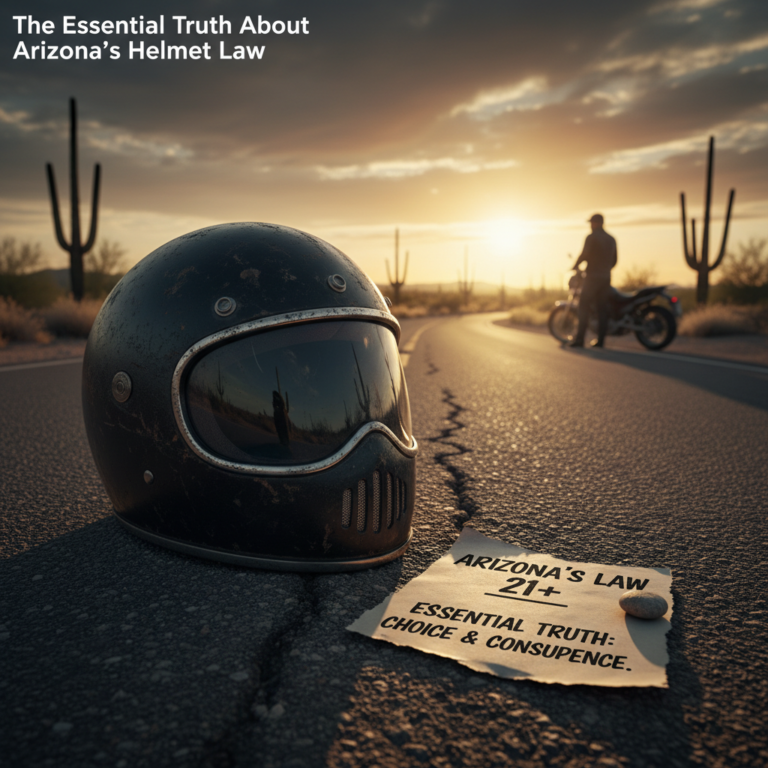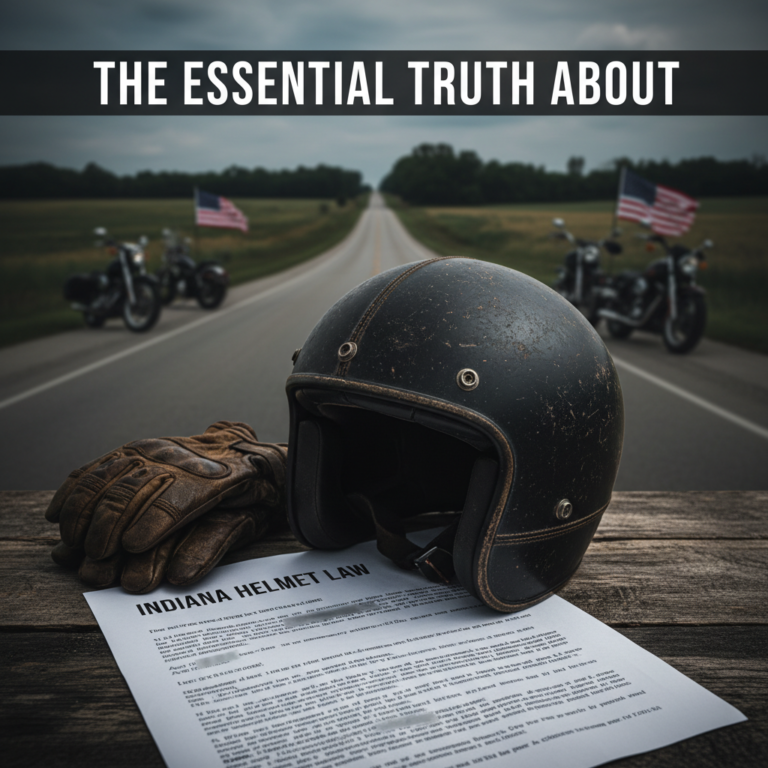Helmet Law Exemptions: Who Qualifies?
Helmet law exemptions vary by state, often allowing riders over 21 to ride without a helmet if they meet specific requirements such as having insurance or completing a safety course. Additionally, your riding experience and licensing play a vital role; novice riders typically must wear helmets, while those with a Class M license and sufficient experience may qualify for exemptions. Understanding these factors is essential for making informed choices about helmet use, as more details on each state’s regulations are available.
Overview of Helmet Laws

Helmet laws vary considerably across different jurisdictions, reflecting diverse attitudes toward safety and personal freedom. The history of helmet laws traces back to the 1960s, when states began recognizing the public safety impact of motorcycle accidents. Initially, many states enacted mandatory helmet laws, believing they would reduce fatalities and severe injuries. Over time, however, some states repealed these laws, citing personal choice and individual responsibility. This shift illustrates a growing emphasis on freedom over enforced safety measures. As you navigate these laws, it is crucial to understand that regulations can greatly differ, affecting your rights and responsibilities on the road. The ongoing debate about helmet laws continues to balance the tension between public safety and personal autonomy.
Age-Related Exemptions

While many states enforce helmet laws for all riders, age-related exemptions create a complex landscape of regulations. These exemptions often hinge on specific age qualifications, allowing certain riders to forgo helmets based on their age. For instance, some states permit riders over 21 to ride without a helmet if they meet certain criteria, such as having insurance or completing a safety course. This flexibility can appeal to those who value personal freedom and wish to explore helmet alternatives. However, these regulations vary widely by state, meaning it’s essential for you to understand the specific laws in your area. Ultimately, knowing these age-related exemptions can empower you to make informed choices about your riding experience.
Experience and Licensing Requirements

Understanding the experience and licensing requirements for riding without a helmet is essential, as these regulations can greatly impact your ability to ride legally. Different states may have specific criteria regarding your riding experience and licensing status, which you need to fully grasp. Below is a summary of how these factors can influence your freedom to ride without a helmet.
| Experience Level | Required License Type | Licensing Impact |
|---|---|---|
| Novice (0-1 year) | Learner’s Permit | Cannot ride without a helmet |
| Intermediate (1-3 years) | Class M License | May qualify for exemption |
| Experienced (3+ years) | Class M License | Likely qualifies for exemption |
| No formal training | None | Cannot ride without a helmet |
| Advanced training | Class M License | Strongly recommended for exemption |
Make sure you know your local laws!
State-Specific Variations
When it comes to riding without a helmet, state-specific variations play an essential role in determining your legal obligations and rights. Understanding these differences is significant for ensuring compliance with local laws.
Consider the following aspects of state regulations and enforcement policies:
- Age Restrictions: Some states only exempt certain age groups from wearing helmets.
- Insurance Requirements: In some places, possessing specific insurance can allow you to forgo a helmet.
- Vehicle Type: Regulations may vary based on whether you’re riding a motorcycle, scooter, or moped.
- Rider Training: Some states require completion of a safety course to qualify for helmet exemptions.
Familiarizing yourself with your state’s rules can empower you to make informed decisions while enjoying the freedom of the ride.
Safety Considerations and Recommendations
Although many riders may feel confident without a helmet, safety considerations should always be a top priority. The effectiveness of helmets in injury prevention is well-documented; studies consistently show that wearing a helmet reduces the risk of head injuries considerably. Even experienced riders should acknowledge that accidents can occur unexpectedly, emphasizing the need for protective gear.
When evaluating your freedom to ride without a helmet, consider potential long-term consequences of injuries. Weigh the thrill of open-air riding against the possibility of severe injury. If you choose to ride helmet-free, make sure you’re aware of your surroundings and maintain a defensive riding posture. Ultimately, balancing personal freedom with safety can enhance your riding experience while minimizing risks associated with riding without a helmet.
Frequently Asked Questions
Do Helmet Law Exemptions Apply to Passengers on Motorcycles?
Yes, helmet law exemptions can apply to passengers on motorcycles, depending on the state’s regulations. While you might value your freedom, it’s essential to understand the legal responsibilities that come with riding as a passenger. Passenger safety is paramount, and even if exemptions exist, wearing a helmet can greatly reduce injury risk. Always check local laws to verify compliance while prioritizing safety for yourself and others on the road.
Are There Penalties for Riding Without a Helmet if Exempt?
Yes, there can be legal consequences for riding without a helmet, even if you’re exempt. While some states may allow exemptions, it’s vital to understand that helmet safety is still a priority. If you’re pulled over and can’t prove your exemption, you might face fines or penalties. Always check local laws to guarantee you’re not inadvertently putting yourself at risk for both safety and legal issues while enjoying your ride.
Can I Apply for an Exemption in Multiple States?
Yes, you can apply for an exemption in multiple states, but you’ll need to meet each state’s exemption criteria. State regulations vary greatly, so it’s essential to research each state’s specific requirements. Some might require proof of insurance or a certain level of riding experience. Make sure you understand how your applications could affect your freedom to ride without a helmet in each jurisdiction you’re considering.
Are There Any Insurance Implications for Not Wearing a Helmet?
Not wearing a helmet can greatly affect your insurance coverage. Many insurers may reduce benefits or deny claims if you’re injured in a motorcycle accident without a helmet, citing negligence regarding helmet safety. Fundamentally, your choice to ride without protection might lead to higher financial risks. It’s vital to understand how your decisions impact not only your safety but also your insurance responsibilities, ensuring you’re fully aware of potential repercussions.
How Do I Prove My Exemption Status if Stopped by Law Enforcement?
To prove your exemption status if stopped by law enforcement, you’ll need to have your exemption documentation ready—like a knight with armor! Familiarize yourself with the law enforcement procedures in your area, as they can vary. Carry copies of your documentation and, if necessary, a valid ID. Stay calm and clearly present your case, ensuring you’re prepared to assert your rights while advocating for your freedom to choose.
References
- https://en.wikipedia.org/wiki/Motorcycle_helmet_law
- https://www.nhtsa.gov/road-safety/motorcycle-safety
- https://www.iihs.org/topics/motorcycle-helmet-use
- https://www.ama-cycle.org/advocacy/helmet-laws/
- https://www.cdc.gov/motorvehiclesafety/motorcycle/index.html
- https://www.ncbi.nlm.nih.gov/pmc/articles/PMC6880625/
- https://www.aaa.com/AAA/common/AARP/Motorcycle-Helmet-Laws-and-Safety.pdf
- https://www.nolo.com/legal-encyclopedia/what-are-motorcycle-helmet-laws-32444.html






